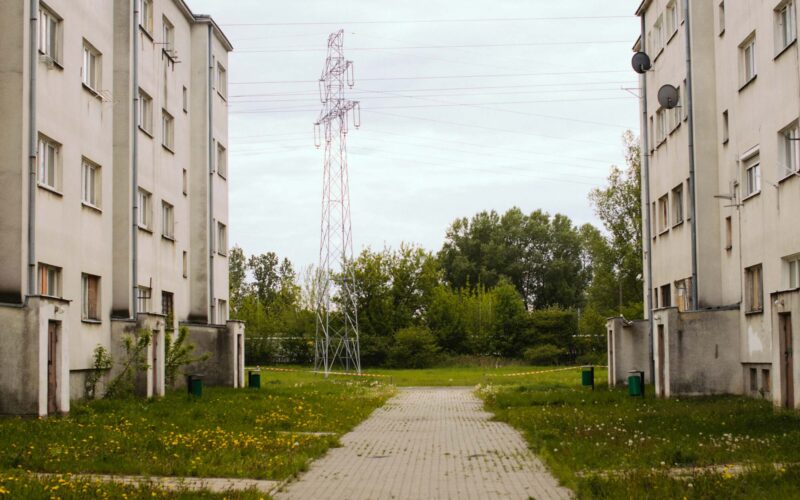My story isn’t just about growing up poor but about the unique lessons that struggle taught me. Now in my 40s, I look back at my childhood with a sense of pride for the unexpected wisdom it gave me. Here are seven lessons that stand out:
1. Mastering the Art of Negotiation
Negotiation was a survival skill I learned early on. It wasn’t just about saving a few bucks at the store; it was about understanding people, what motivated them, and how to communicate effectively to achieve a mutual benefit. I remember accompanying my mom to garage sales, watching her talk down prices not just by haggling but by connecting with sellers, sharing stories, and making them feel good about the sale. This skill has been invaluable, helping me navigate job offers and major purchases by understanding the value of what I bring to the table and how to articulate it.
2. Becoming Resourceful in the Face of Limited Resources
Living with limited means taught me to be incredibly resourceful. When you don’t have the luxury of buying new things, you learn to fix, adapt, and reuse what you already have. I became the family fixer, from mending clothes to improvising solutions for broken home appliances. Once, when our family couldn’t afford a new heating unit, I discovered how to repurpose old blankets into window insulators, significantly reducing our winter heating bill.
This mindset pushed me to think outside the box, finding solutions where others saw dead ends. It wasn’t just about saving money; it was about fostering a sense of independence and capability that I carry with me to this day. I’ve learned that limitations can force me to think differently and innovate within constraints.
3. Understanding the Real Cost of Cheap Things
One of the ironies of poverty is that trying to save money often leads to spending more in the long run. We frequently bought cheaper, lower-quality items that would quickly break or wear out, forcing us to replace them sooner. This cycle of buy-break-replace was a hard lesson in the true cost of cheap products. Over time, I learned the value of saving up for better-quality items that would last longer, even if it meant going without in the short term. This lesson in foresight and planning has helped me make smarter financial decisions as an adult.
4. Learning That Time Is More Than Money
In a low-income household, time is a precious commodity. My family worked multiple jobs, and every moment was accounted for, whether it was spent working, maintaining the home, or trying to find deals on necessities. This constant busyness taught me to value time highly and to use it wisely. This realization hit home during evenings spent helping my siblings with homework instead of taking on additional work hours.
This perspective has helped me maintain work-life balance, valuing moments with family and personal development as much as professional achievements, understanding that success is beyond what I can accomplish for myself. It wasn’t just about working hard but about working smart, finding ways to be more efficient and freeing up time for the things that matter most. This respect for time has helped me prioritize my life and focus on my goals.
5. The Invisible Networks of Support
Support often came from unexpected places and in subtle ways. It was the neighbor who would anonymously leave a bag of groceries on our doorstep or the teacher who provided school supplies out of her own pocket. One Christmas, when our family could barely afford basic necessities, a local community group sponsored our family, ensuring we had presents and a festive meal.
These acts of kindness showed me that support doesn’t always come with grand gestures or announcements. It’s often quiet and humble, but its impact is profound. It taught me to look out for others in the same way, offering support without seeking recognition, because I know how much those small acts can mean.
6. The Deep Roots of Generosity in Community
Despite our own financial struggles, my family was always ready to help others in need. This generosity wasn’t about having plenty to give; it was about understanding that we were all in this together. Sharing what we had, whether it was food, time, or effort, was about building a stronger community where everyone looked out for each other. This sense of collective care and generosity wasn’t just about charity; it was a shared investment in each other’s well-being, reinforcing the idea that we’re stronger together.
I remember my mom, despite our financial hardships, baking extra loaves of bread for new neighbors or families in need. This generosity, even when we had little, showed me the strength of friendships. It wasn’t just about sharing resources but about creating a network of mutual support and understanding, reinforcing the belief that generosity is not about the size of the gift but the heart behind it.
7. Education Extends Beyond the Classroom
Perhaps the most important lesson was that true education goes beyond textbooks and classrooms. It’s found in the real-world experiences of managing a household budget, navigating social services, and advocating for yourself and your family. These lessons in practical life skills, resilience, and self-reliance have been just as valuable as any academic knowledge. They taught me to seek learning in every situation and to value diverse forms of knowledge and intelligence.
These are just some of my reflections about the unexpected gifts of wisdom, resilience, and community that adversity can bring. It doesn’t matter what kind of background you come from because there’s always life lessons to be learned.

